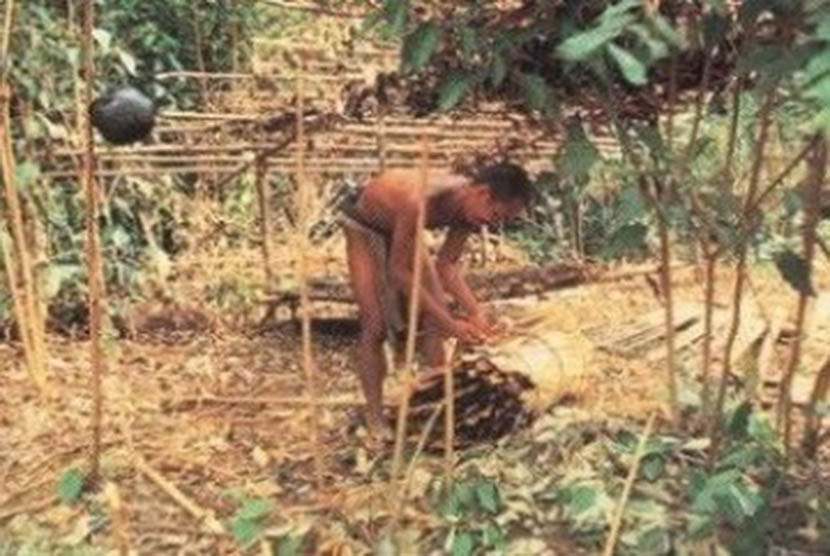REPUBLIKA.CO.ID, JAKARTA -- The Ministry of Social Affairs is ready to empower nomadic forest people residing in Bukit Duabelas National Park (TNBD) in Jambi province.
"One of the Social Affairs Ministry's concrete programs is an empowerment model through permanent residential settlement," Hartono Laras, the director general of the Social Empowerment and Poverty Handling Affairs of the Ministry of Social Affairs, said here on Wednesday.
The empowerment program constituted a long-term scheme worked out for isolated tribal communities.
Emergency steps include consultation and medical treatment for ailing forest people ('Orang Rimba') who are suffering from starvation that has so far claimed 11 lives of them.
Hartono pointed out that the government will act fast and gather enough data needed for developing their residential settlements.
"We have to handle this maturely because they have their own traditions and their surrounding nature has already changed," Hartono noted.
Steps such as approaches, advocacy, social studies and mapping out are needed before moving them to another permanent residence, he remarked.
"They are generally willing to be shifted to a settlement, this we know from counseling," asserted Hartono.
Until now, the Ministry of Social Affairs has conducted empowerment activities for 70 thousand isolated tribes in 24 provinces.
It was reported earlier that thousands of forest people living in Bukit Duabelas National Park of Sarolangun-Batanghari District, Jambi Province, have been starving due to lack of food.
Manager of the People's Empowering Program of the KKI, Warsi Robert Aritonang remarked that forest people were facing food shortage after some companies cleared land in their forests to plant oil palms.
"The number of Orang Rimbas in Bukit Duabelas reaches 3,850. Forest area where they can find food is declining as forests have become plantation areas," Robert said.
According to him, from January to February, at least 11 Orang Rimbas, eight of them children, died of starvation.
They also did not receive good medical treatment, neither did they receive any immunization supply and they became vulnerable to diseases that endangered their lives, he added.


